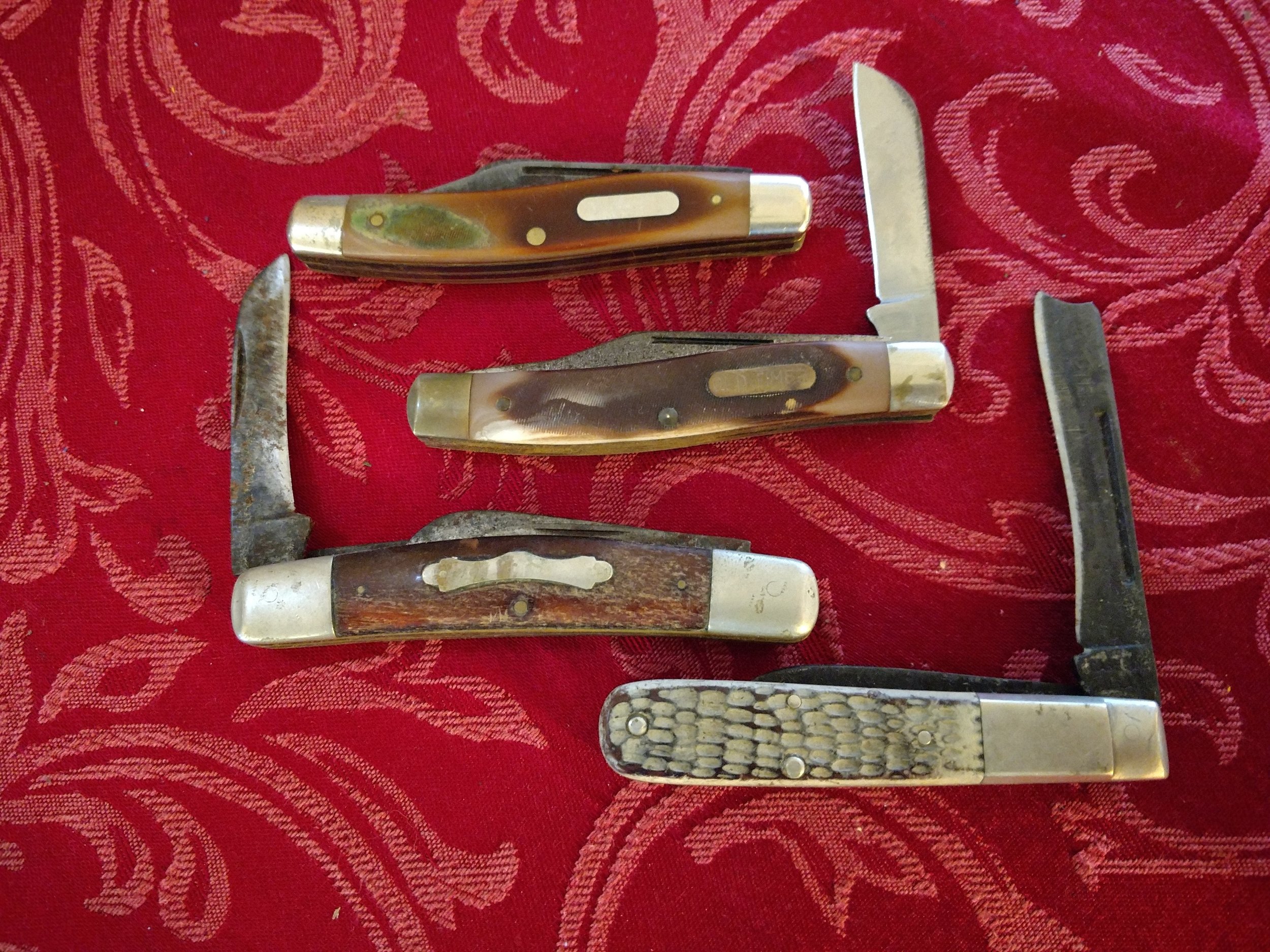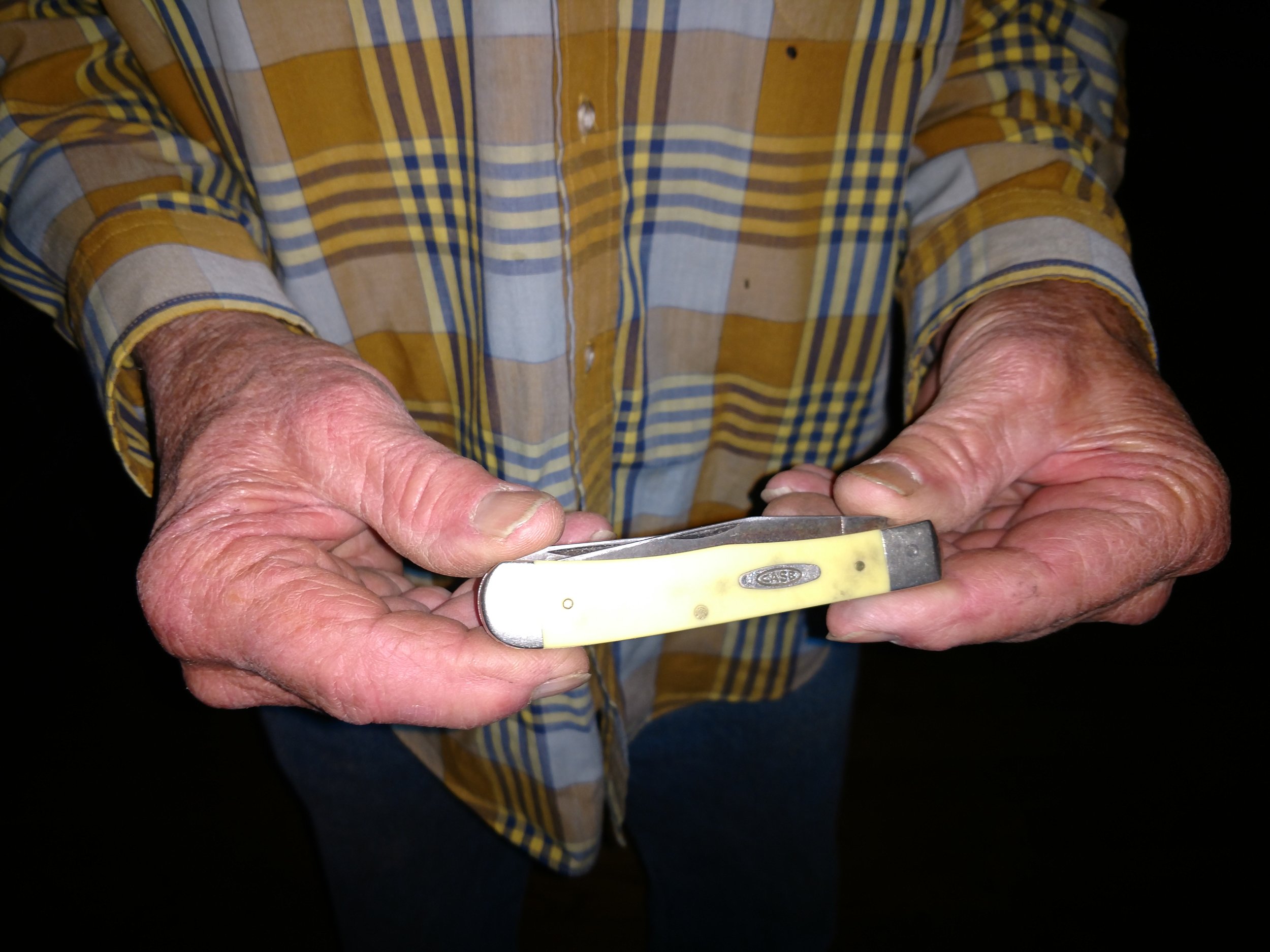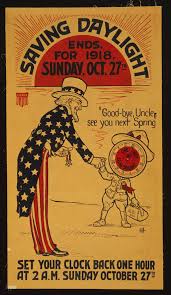Trading Knives
/My knife collection - the top 2 belonged to my Grandfathers and the bottom 2 were my Great-Grandfathers’
I got to thinking about pocket knives after talking with a cousin who remembered my Grandpa coming to her mother’s house and saying, “Alright boys, throw your knife up here and let’s see who’s got the best ‘un.” They’d all pull out their pocket knives and have a big time comparing and trading.
While they’re forbidden in schools and airplanes and frowned upon in lots of other places, a knife has endless uses and can be downright indispensable in some situations. Whether it’s a Marine Corps issue K-Bar, Leatherman multi-tool or Case’s little single blade you can protect yourself, dress game or save your nails when opening mail. From trimming strings on a shirt collar to opening a bag of horse feed if you’ve got one in your pocket you’ll be reaching for your knife as though it’s an extension of your person.
If you’ve ever gotten in the habit of carrying a knife then you feel naked without it. In fact, I often ask my Daddy if he’s got a knife (because I need one and don’t have one in my own pocket!) and he responds, “Have I got my pants on?” He had a little hospital visit a couple of years ago and left the knife at home. Even on the drive home he was looking for that knife.
Carrying a pocket knife used to be a rite of passage in a young man’s life – and a rite that passed pretty early. Knives are easily lost and blades often chip so I don’t suppose many of those boys ended with their original knife. But I have been lucky enough to get some old knives passed on to me. I doubt they hold any real value but like so many of my treasures that I’ve shared with you, they are priceless to me. I have the knife that my Grandpa Henry Livesay carried really all of his life that I remember, and the one he carried right up till he died and I have knives from 2 of my great-grandfathers. These are some of my greatest treasures because I know the men carried this close to them every day. They are well used and that makes them all the more treasured to me because they were tools for my ancestors, things they used in their daily lives.
I don’t think I fully understand the joy of trading knives – and I’m hoping some of you fine readers will comment below and truly enlighten me. But I know it was a game to my Grandpa and his brothers, cousins and nephews. When he called them to throw down he had no plan of boasting a fine piece of steel beyond their means, no desire to embarrass anyone and certainly no plan to cheat any of them out of a valued blade. They were family having family fun – and I’m sure they would extend that fun well beyond their clan whenever the opportunity arose.










